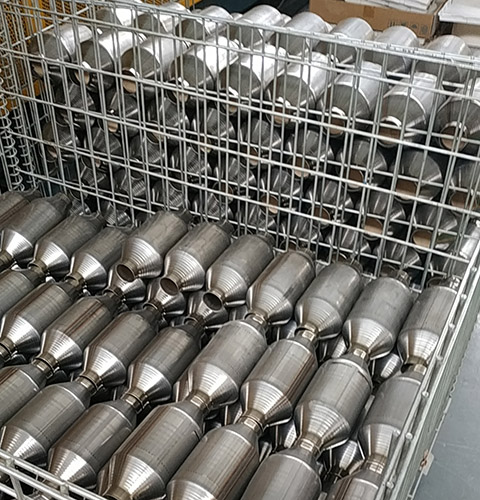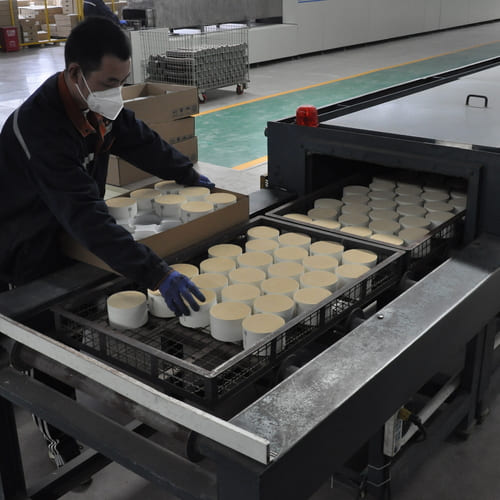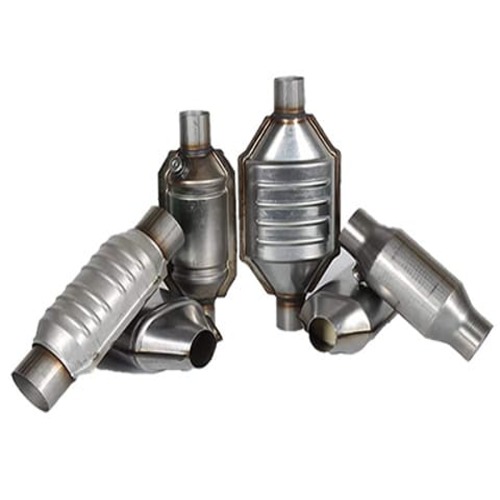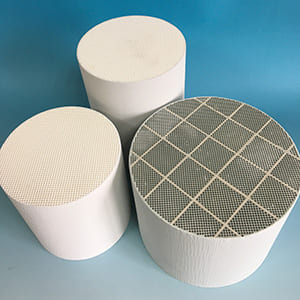Ever had a client question the quality of an aftermarket catalytic converter? Or perhaps they insist on only OEM (Original Equipment Manufacturer) parts. How does a wholesaler like you navigate this complex debate, especially when the stakes are high and client relationships are on the line?
OEM and aftermarket catalytic converters both come with their unique set of advantages and potential drawbacks. While OEM parts are manufactured by the vehicle’s original producer and guarantee a seamless fit, aftermarket alternatives can offer cost advantages and sometimes even enhanced performance. This article offers a comprehensive comparative analysis tailored for wholesalers, helping to guide sourcing and stocking decisions.
Eager to dive deeper into the intricacies of both? Let’s dissect this comparison to assist you in making an informed choice.

What Exactly is an OEM Catalytic Converter?
An OEM catalytic converter is produced by the vehicle’s original manufacturer. It’s essentially the same part installed in the vehicle when it rolls off the production line.
And an Aftermarket Catalytic Converter?
Aftermarket catalytic converters are produced by third-party companies, not affiliated with the vehicle’s primary manufacturer. They are designed to function as replacements, but can sometimes differ in design and materials.
Are OEM Converters Always of Higher Quality?
While many assume that OEM guarantees higher quality, this isn’t always the case. OEM parts ensure an exact fit and are typically accompanied by a warranty, but aftermarket manufacturers often study OEM parts to create improved, more efficient designs.

What About the Cost Differences?
Generally, OEM parts tend to be more expensive than their aftermarket counterparts. The reason? Brand recognition, perceived quality, and the monopoly of car dealerships selling them. On the other hand, aftermarket parts offer competitive pricing due to market competition.
Can Aftermarket Converters Offer Better Performance?
Some aftermarket converters promise enhanced performance and efficiency. This is because third-party manufacturers might use different materials or innovative designs to differentiate their products from OEM parts.
What are the Warranty Implications?
Warranties play a crucial role. OEM parts often come with a warranty, ensuring replacement in case of premature failure. On the other hand, the warranty on aftermarket parts can vary widely depending on the manufacturer.
How Do Installation and Fit Compare?
OEM parts promise a perfect fit, as they’re an exact replica of the original. Aftermarket parts, however, can sometimes cause fitment issues, although many reputed aftermarket manufacturers ensure high compatibility.
Which is More Readily Available?
For wholesalers, availability is key. While OEM parts can sometimes be harder to source, aftermarket parts are widely available due to the multiple manufacturers producing them.

Conclusion
For wholesalers, the debate between OEM and aftermarket catalytic converters isn’t black and white. Both come with distinct advantages. OEM guarantees quality and fit, but often at a higher price. Aftermarket alternatives, meanwhile, can be cost-effective and even offer enhanced performance in some cases. The decision ultimately hinges on understanding clients’ needs, budget considerations, and weighing the pros and cons of each option. Armed with this knowledge, wholesalers can confidently navigate client queries and source the best products.

